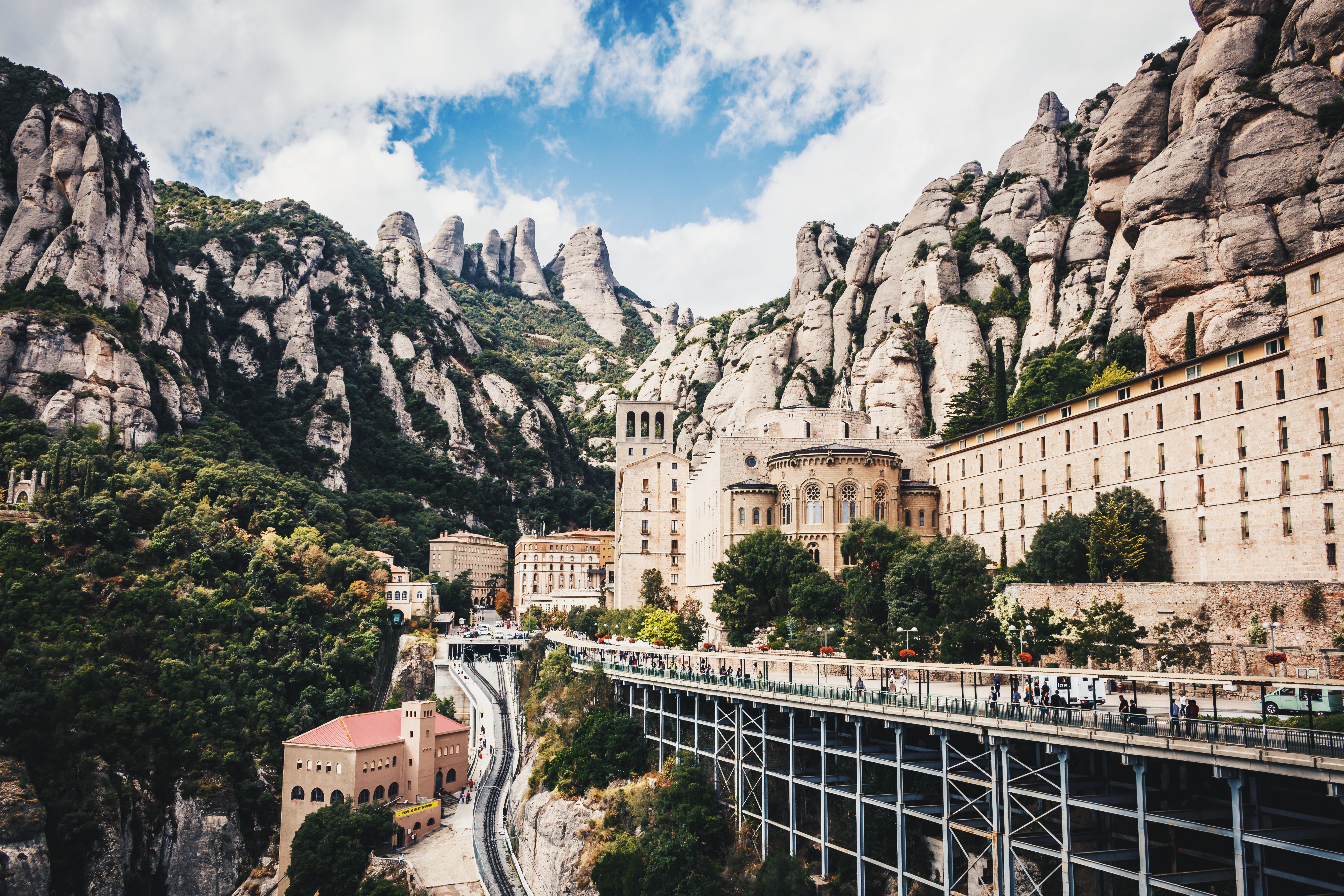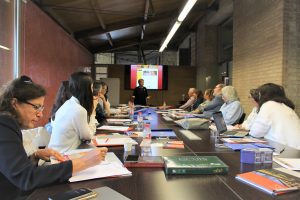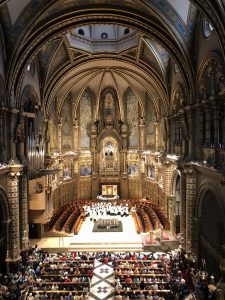The last week of May was marked by a Face to Face Members Meeting in Girona, Spain, organised by FRH, in partnership with the University of Girona. Discussions with members and Catalan partners were followed by a study visit to the magnificent Monastery of Montserrat.
These meetings, organised on a regular basis exclusively for FRH members, enhance the role of our network as a platform where members meet, network and exchange ideas, information and practices.
On the first day of the meeting, FRH members discussed the FRH roadmap, new initiatives, presented their projects and reflected on developing an FRH Position Paper.

The meeting started with a presentation of the new members section on the FRH website, a feature allowing members to exchange good practices, look for project partners, access key documents and watch innovative webinars. The section includes a discussion forum, a virtual library, member-exclusive events and downloads. The final details and access codes will be sent out soon!
The meeting continued with reflections on the development of the FRH Position Paper, a key document that will synthesise our member’s input and visualise FRH’s policy position regarding religious heritage. The document will point out the predominant place of religious heritage in European culture, as well as the need and place for a European policy on the subject. The Position Paper will be presented to the European Commissioner for Education, Culture, Youth and Sport, Mr Navracsics during our biannual Conference in Paris this October 2018.
During the project presentations, members had a chance to learn about initiatives from different parts of Europe that are contributing to safeguard and promote religious heritage. Mr António Rebelo, of the Confraria da Rainha Santa Isabel in Portugal, presented the private organisation managing half of the Monastery of St Claire in Coimbra, reflecting on the challenges and opportunities arising from this management modality. Mr Panche Velkov, of the Makedonida Foundation in Macedonia, presented the association, which focuses on religious heritage in Macedonia, including Christian and Muslim heritage, and signalled the fact that after Turkey, Macedonia has the most important Ottoman heritage in Europe. Another member attending the meeting, VBML from the Netherlands, federates and provides management advice to 600 of the most important Dutch churches.
After the productive meeting in the morning, FRH members had the pleasure of welcoming several Catalan partner organisations, who presented their projects, offering a comprehensive overview of the situation of Catalan religious heritage and of the innovative initiatives designed to overcome challenges. We were truly honoured to host representatives of the Faculty of Tourism of the University of Girona, which is very involved in religious tourism education; the Agència Catalana de Patrimoni, the agency responsable for managing and promoting a large part of Catalan religious heritage; Catalonia Sacra, an initiative by the Bishoprics of Catalonia which promotes religious tourism by training specialised guides; the Patronat del Call de Girona, working on Girona’s Jewish heritage and the incubation of religious heritage startups; the Manresa i el Camí Ignasià, a city-sponsored initiative promoting a pilgrimage route via arts, crafts and religious tourism; and representatives from the Bishopric of Girona. The day ended with a tour of the Girona Cathedral, Basilica and historic centre.

During the second day of the Face-to-Face meeting, members went on a a study visit to the Montserrat Monastery, located on the Montserrat mountain range in the heart of Catalonia. The monastery dates back to the 11th century and has an active monastic community of around 70 monks. It has held a religious, cultural and social importance since medieval times, both as a symbol of Catalan identity and as a beacon of Christianity. Members received a guided visit of the audio-visual information centre, followed by an exclusive guided tour of the Monastery, usually not open for visitors, by Pare Manel, a member of the monastic community. The visit concluded with the spectacular singing of the Montserrat boys choir, active since the 14th century. Finally, participants had lunch with the site manager Josep Altayó, who answered questions and explained the intricacies of managing a site like Montserrat.

We would like to thank all the members and participants who joined us in Girona for great presentations and discussions. We are also very grateful to Silvia Aulet and her colleagues from the University of Girona for their dedication and invaluable help in organising this visit.





Follow us: